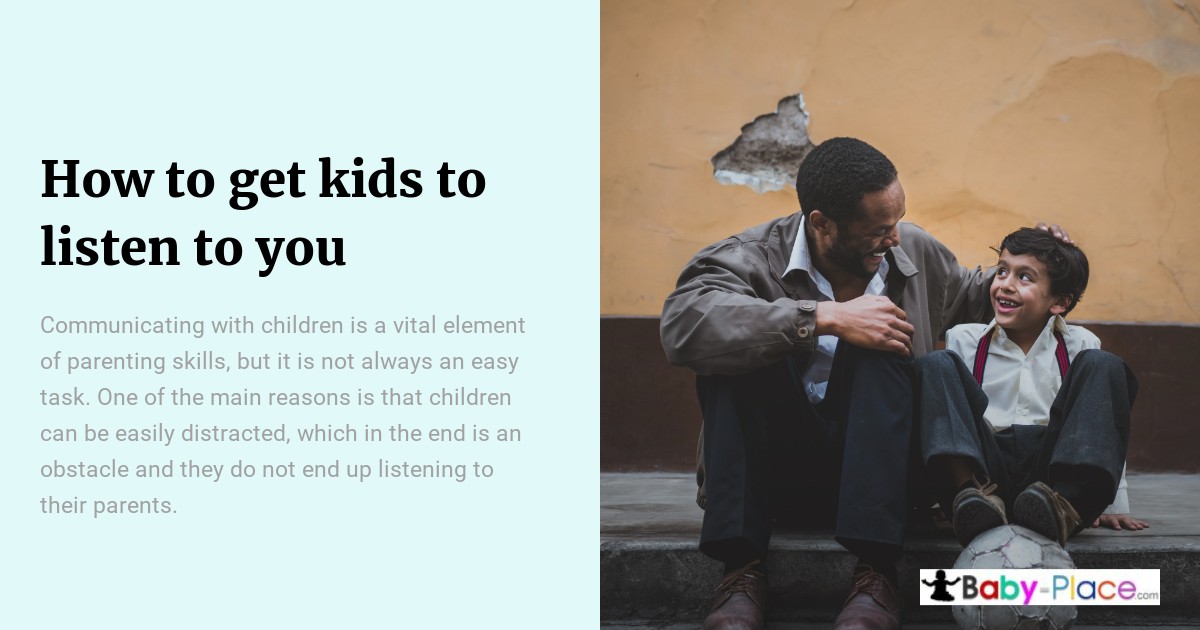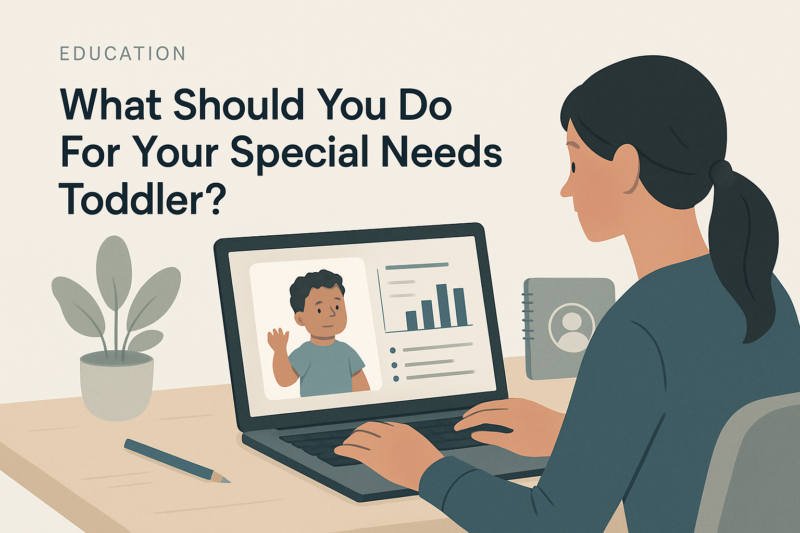
Parent Information for Child with Special Needs
Your child is different than other children. They are smart, funny, and interesting, but they don’t always act like other kids. You love them no matter what, but you worry about how they will make it through school and life. You want to help them, but you don’t know where to start.
You’re not alone. Many parents feel the same way. It can be hard to understand why your child acts the way they do. You’ve already taken the first step by coming here. This article will guide you through what it means to have a child with special needs and how you, as a parent, can best support your children with special needs.
What are Special Needs, and How Does it Affect Children?
A disability is defined as any physical or mental impairment that limits a person’s ability to perform certain activities. Disabilities can be congenital (present at birth) or acquired later in life. There are many types of disabilities, including:
- Autism spectrum disorder
- ADHD
- Down syndrome
- Cerebral palsy
Each disability affects children in different ways. Some children with disabilities are able to live relatively normal lives, while others may require constant care. If your child was recently diagnosed with a disability, you might feel scared or alone. It’s okay to feel this way. It’s normal to need time to adjust to the news. You might also need help understanding what the diagnosis means for your child and your family.
The best thing you can do is get informed. Learn about your child’s disability and what treatments are available. There are many resources available to help you, including your child’s doctor, therapists, and teachers. You can also find information online from a support group or parent organization.
How to Support Your Child With Special Needs at Home
One of the most important things you can do for your child with special needs is to create a supportive home environment. This means having realistic expectations, providing structure and routine, and offering love and acceptance. It’s important to remember that every child is different.
What works for one child might not work for another. You will need to experiment to find what works best for your child. In general, however, here are some tips for supporting your child at home:
Create a Routine and Stick to It
Children with special needs often benefit from structure and routine. Having a set schedule will help them feel more in control of their lives and can ease anxiety. It’s important to be patient and flexible when creating a routine. Things will not always go according to plan, but try to stick to the basic schedule as much as possible. Write it down, post it in a visible spot, and involve your child in the process.
Encourage Independence
While there are some things that they may require assistance from time to time, make sure that you let them do things on their own too! A child with special needs will feel more empowered and independent if they are allowed to do things for themselves. This includes everything from brushing their teeth to making their own breakfast. Assist as you go along the way, but don’t do everything for them.
Make Expectations Realistic
Setting realistic expectations is important for both parents and children. Don’t expect your child to be able to do things that they are not capable of. On the other hand, don’t underestimate your child’s abilities. Help them achieve their goals one step at a time. You’ll be surprised at how much they can accomplish when given the chance.
Provide Love and Acceptance
Your child needs your love and acceptance more than anything else. They will make mistakes and have setbacks, but they need to know that you love them no matter what. This doesn’t necessarily mean that you have to agree with everything they do. It just means that you need to provide support and understanding.
Show your special needs child affection in whatever way they respond to it. This might be through hugs, verbal praise, or quality time spent together.
Early Intervention is Important
The sooner a child begins receiving treatment for their disability, the better. While some disabilities cannot be cured, early intervention can help children reach their fullest potential. Early intervention services include therapy, special education, and counseling. These services are essential for helping children with disabilities learn new skills and catch up to their peers.
They can also help families cope with the challenges of having a child with special needs. Additionally, early intervention programs may assist in teaching parents proper child care techniques and how to advocate for their special needs child.
Support Your Child’s Education
Children with special needs have the right to free and appropriate education. This means that they are entitled to an education that meets their individual needs. As mentioned earlier, their learning abilities may require much-specialized care, and understanding how to work with their unique abilities is important. You can support your child’s education by:
- Attending Individualized Education Program (IEP) meetings
- Working closely with their teachers and therapists
- Making sure they have the necessary resources
- Monitoring their progress
- Advocating for their needs
- Working with the school to create an appropriate individualized education plan for your child
Different Ways to Help Your Child in School
Parenting a child with special needs can be challenging, but you are not alone. Most often, children with disabilities are exceptional children – they have something to offer that is unique and special. Despite the developmental disability, you can still bring out your childs strengths and help them succeed in school.
There are various ways to help your child in school, but it will likely take some trial and error to find what works best for your child. Some things you may want to try include:
Building Self-Esteem
Most often, children with special needs struggle with low self-esteem. They might see other children doing things that they cannot do and feel inferior. Nothing is more damaging to a child’s self-esteem than feeling like they are not good enough.
Praising their efforts and not just the outcome of their work can help them feel good about themselves. Help them see that you are proud of their hard work and persistence, no matter the results, and provide positive affirmations on a regular basis.
Break Down Tasks into Smaller Steps
It can be overwhelming for children with special needs to look at a big project and feel like they have to complete it all at once. Help them break down the task into smaller, more manageable steps. Get them involved, and let them understand that they can complete the task if they take it one step at a time. This will help them feel more confident and capable.
Know Which Learning Method Works for Them
Whether you have a young adult or a high school student, as a parent, you know your child better than anyone. You likely already have an idea of which learning method works best for them.
If they are a visual learner, provide pictures or diagrams to help them understand the concepts. If they are more hands-on, allow them to build or create something related to the lesson. If they learn best by hearing things, read to them or have them listen to audio recordings. There is no one-size-fits-all answer, so try a variety of methods to see what works best for your child.
Be Their Cheerleader
Children with special needs need someone in their corner, cheering them on and believing in them. Be that person for your child. Show them that you believe in their abilities and think they can achieve anything they set their mind to. If something’s making them feel bad in school, be the first person to help them problem-solve and find a solution.
Adapt Your Home to Make Life Easier
Making small adjustments around the home can make a big difference for children with special needs. Depending on your child’s needs, you may want to consider adding:
- A sensory room or space
- A soft place for them to rest their head
- Storage for special equipment or tools
- Wider doorways and hallways
- Lower shelves and cabinets
- Ramps instead of stairs
Use Technology
Many assistive technologies are available that can help children with special needs in school. Some examples include:
- Speech-to-text software
- Word prediction software
- Mind mapping tools
- Text readers
- Calendar and scheduling apps
You will likely need to experiment with different technologies to find what works best for your child. However, using technology can be a great way to level the playing field and give your child the tools they need to succeed.
Different Types of Therapies: Which One is Most Suited for Your Child?
Part of the early intervention process includes providing therapies to help your child reach their fullest potential. Your physician usually recommends a specific type or types of therapy, depending on your child’s diagnosis. Through therapy, your child will learn new skills and strategies to help them cope with their disability.
There are many different types of therapies, so it is important to find one that meshes well with your child’s personality and needs. There is no one right answer when it comes to helping children with special needs. Every child is unique and will require a different approach. As a parent, it is important to be creative, adaptive, and supportive.
With the right tools and strategies in place, your child can achieve anything they set their mind to. Don’t hesitate to ask questions or get a second opinion if you’re not sure about the therapies your child is receiving.
Physical Therapy
Physical therapy helps children with movement and coordination problems. It can also help improve strength, balance, and posture. Children with Down syndrome, cerebral palsy, and muscular dystrophy often benefit from physical therapy. Commonly used exercises and activities include:
- Range of motion exercises
- Strengthening exercises
- Gross motor skills activities
- Balance and coordination exercises
Sometimes, physical therapy also includes using assistive devices or equipment, such as walkers, braces, and wheelchairs, depending on your child’s needs.
Occupational Therapy
Occupational therapy helps children with fine motor skills and daily living activities. It can also help with sensory processing issues. Too much noise or movement can be overwhelming for some kids, while others may not feel sensations like pain or temperature correctly.
Occupational therapy can help kids learn how to deal with these challenges and improve their ability to function in school and at home. Occupational therapists often use activities that include play, sensory activities, and adapted tasks. Children with ADHD, Asperger’s Syndrome, and autism spectrum disorder are often helped by occupational therapy.
Speech Therapy
Speech development is crucial for children to be able to communicate their needs and interact with others. Speech therapy can help with a variety of issues, including:
- Articulation problems
- Fluency disorders
- Voice disorders
- Language impairments
Children who stutter, have apraxia, or cleft palate often benefit from speech therapy. Additionally, children who are late talkers often undergo speech therapy. This therapy goes typically hand-in-hand with occupational therapy.
Applied Behavior Analysis
Applied behavior analysis helps children with autism spectrum disorder and other developmental disabilities. It focuses on changing problem behaviors and teaching new skills. ABA therapy often uses reinforcement, such as awards or privileges, to help children learn desired behaviors.
Therapies that use applied behavior analysis may include but are not limited to pivotal response treatment, discrete trial training, and verbal behavior therapy.
Sensory Integration Therapy
Sensory integration therapy helps children who have trouble processing and responding to information they receive through their senses. During sessions, children are exposed to a variety of sensory inputs like textures, lights, and sounds. This therapy can help children with ADHD, sensory processing disorder, and autism spectrum disorder.
Final Thoughts
Parenting children with special needs can be challenging, but it is also incredibly rewarding. It’s not easy, but you and your child can do it. With the right support, your child can thrive and reach their full potential. Always work hand-in-hand with your child’s doctors and therapists to get the best care possible.
Finding the right approach, providing them support both in school and at home, and staying positive are all crucial steps during the process. Remember, you’re not alone. It’s easy to feel overwhelmed, but there are plenty of people who want to help. Don’t hesitate to reach out for support when you need it.
Frequently Asked Questions:
What are some common types of disabilities in children?
Common types of disabilities in children include Autism spectrum disorder, ADHD, Down syndrome, and Cerebral palsy. Each disability affects children differently, and some may require more specialized care than others.
How can I create a supportive home environment for my child with special needs?
To create a supportive home environment, establish a routine, encourage independence, set realistic expectations, and provide love and acceptance. Structure and consistency can help your child feel more secure and in control.
Why is early intervention important for children with special needs?
Early intervention is crucial because it helps children with disabilities reach their fullest potential. Services like therapy, special education, and counseling can teach new skills and help them catch up to their peers. It also provides families with the tools to support their child effectively.
What are some ways to support my child's education if they have special needs?
You can support your child's education by attending IEP meetings, working closely with teachers and therapists, ensuring they have necessary resources, monitoring their progress, and advocating for their needs. Collaboration with the school is key to creating an appropriate education plan.
What types of therapies are available for children with special needs?
Various therapies are available, including Physical Therapy for movement issues, Occupational Therapy for fine motor skills, Speech Therapy for communication, Applied Behavior Analysis for behavioral changes, and Sensory Integration Therapy for sensory processing issues. The right therapy depends on your child's specific needs.



